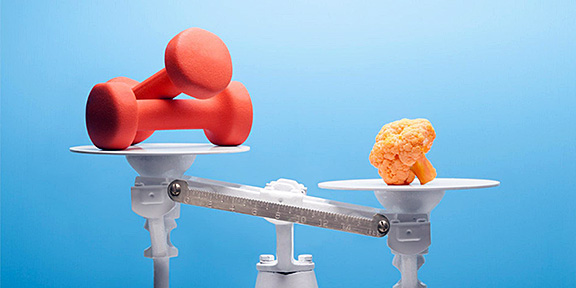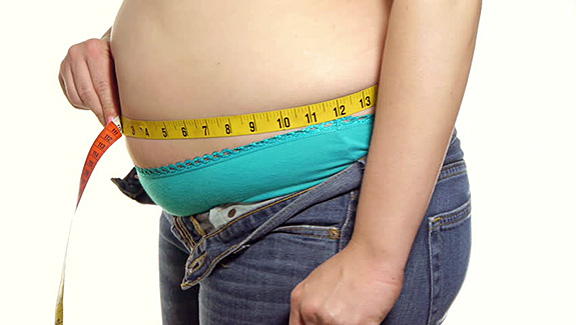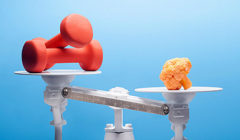Exercise vs. Diet: Which is Best?
COVID-19 has created a perfect storm for people who struggle with weight. With most of us spending our time at home during the Pandemic, it’s no surprise that as sheltering-at-home restrictions ease up, we would be concerned about “COVID curves” or the “Quarantine 15.”
 With gyms closed and self-motivation lacking most of us have traded our treadmills, weights, and Pilates classes in for comfort food and alcohol. Gym and park closures have upended exercise routines, and parents who suddenly had to work from home while homeschooling their children have dealt with unmanageable amounts of stress. Medical checkups and physicals got postponed, and our health issues along with our weight loss goals have been pushed to the bottom of the priority list.
With gyms closed and self-motivation lacking most of us have traded our treadmills, weights, and Pilates classes in for comfort food and alcohol. Gym and park closures have upended exercise routines, and parents who suddenly had to work from home while homeschooling their children have dealt with unmanageable amounts of stress. Medical checkups and physicals got postponed, and our health issues along with our weight loss goals have been pushed to the bottom of the priority list.
Should you cut yourself some slack right now? After all, we are in the midst of a Pandemic! If you are still in a normal weight range, an extra 5 to 10 pounds may not make a significant impact on your health, but if you are overweight or obese, losing 7 to 10% of your weight can decrease your risk factors for chronic diseases related to obesity.
So, when it comes to trimming fat and shedding those extra pounds, which is more important, exercise or diet? Are we supposed to start exercising as often and as much as we can? Should we focus solely on what we’re putting in our mouths? Let’s dig a little deeper and see if we can come to a reasonable conclusion.
The Low Down on Calories
At a physiological level, weight loss and weight gain revolve around caloric consumption and expenditure. Put simply, we lose weight when we eat fewer calories than we expend. Conversely, we gain weight when we eat more calories than we expend. In order to lose one pound of fat, we must create a 3,500-calorie deficit, which can be achieved either through diet or exercise.
Let’s say that a 200-pound woman wants to lose one pound in a week. Through exercise alone, she needs to run about 3.5 miles per day, assuming her diet stays the same. Through dieting alone, she needs to cut back 500 calories a day, given her exercise regime stays the same. Theoretically, the two should achieve the same results.
What about simultaneously exercising and accounting for dietary intake?
One study, published in the International Journal of Obesity and Related Metabolic Disorders, took trained subjects and had them track dietary intake along with energy expenditure. On paper, there was an overall caloric deficit created by the subjects. However, when researchers examined empirical changes, no weight was actually lost. As it turns out, subjects were simultaneously underestimating caloric intake and overestimating caloric expenditure. At the end of the day, exercise-focused regimens are relatively ineffective for weight loss. This is primarily because people are horrible estimators of calories in vs. calories out.

How to Effectively Incorporate Diet and Exercise
Both fitness and food choices are vital for long-term weight control. The National Weight Control Registry, established in 1994 by scientists at the University of Colorado and Brown Medical School, are following more than 10,000 Americans who have lost weight and kept it off for years. Just 1% kept the pounds off with exercise alone, 10% did it with diet alone, and 89% used both.
Studies have proven time and time again that most people struggle far more with their kitchen than with their gym. They’ll willingly find thirty minutes or more a day to hit the gym, go for a walk, or simply up their daily activity, but when it comes to packing a lunch, prepping meals, cooking dinner, or keeping a food journal it’s like pulling teeth.
A Few Simple Rules
A few simple rules can not only get you on your way to long-term success, they can also keep you on track to reaching short-term goals.
Doing less exercise consistently is better than doing more intermittently.
Spending two to three minutes a day with a food journal is likely to have a bigger impact on your weight than thirty minutes a day in the gym.
Don’t just count calories. Change what you eat.
Eating More, Weighing Less
You don’t have to settle for less! You can still fill your plate with an abundance of food and lose weight. Make food choices that give you the most satiety per calorie such as:
Fresh fruits
Fresh vegetables
Water-rich whole grains like hot cereals and brown rice
Starchy vegetables like potatoes, corn, and yams
Legumes like black beans and pinto beans
Low-fat dairy
Lean animal foods like seafood, egg whites, bison, and white poultry
Diet Plays a Bigger Role in Weight-Loss
While going to the gym will help you burn more calories, most people tend to put the calories right back on. It’s much easier to eat five hundred calories than it is to burn it off. So, if you have to choose between the two, the evidence is clear that diet plays a much bigger role in weight loss.
In Conclusion:
So, are you better off eating a salad than hitting the gym? Do the math and I think you will come up with the right answer.
Whatever your weight goals may be, now is a good time to assess your lifestyle and focus on all the things that keep you healthy. The food choices you make are just as important as the amount of exercise you’re doing for long-term weight loss success.
Let’s keep exercising, but even more importantly, let’s place more emphasis on encouraging ourselves and the ones we love to make better food choices. Remember: “You can’t out-train a bad diet!” Good luck to you.
I have been a personal trainer for over seventeen years and I honestly feel that I have one of the best jobs out there! The most rewarding part of my profession is helping one of my clients succeed at reaching their personal fitness goals. Making a difference in someone’s life makes it all worthwhile. I am currently certified by the National Sports Conditioning Association, Apex Fitness Group and the International Sports Science Association.











